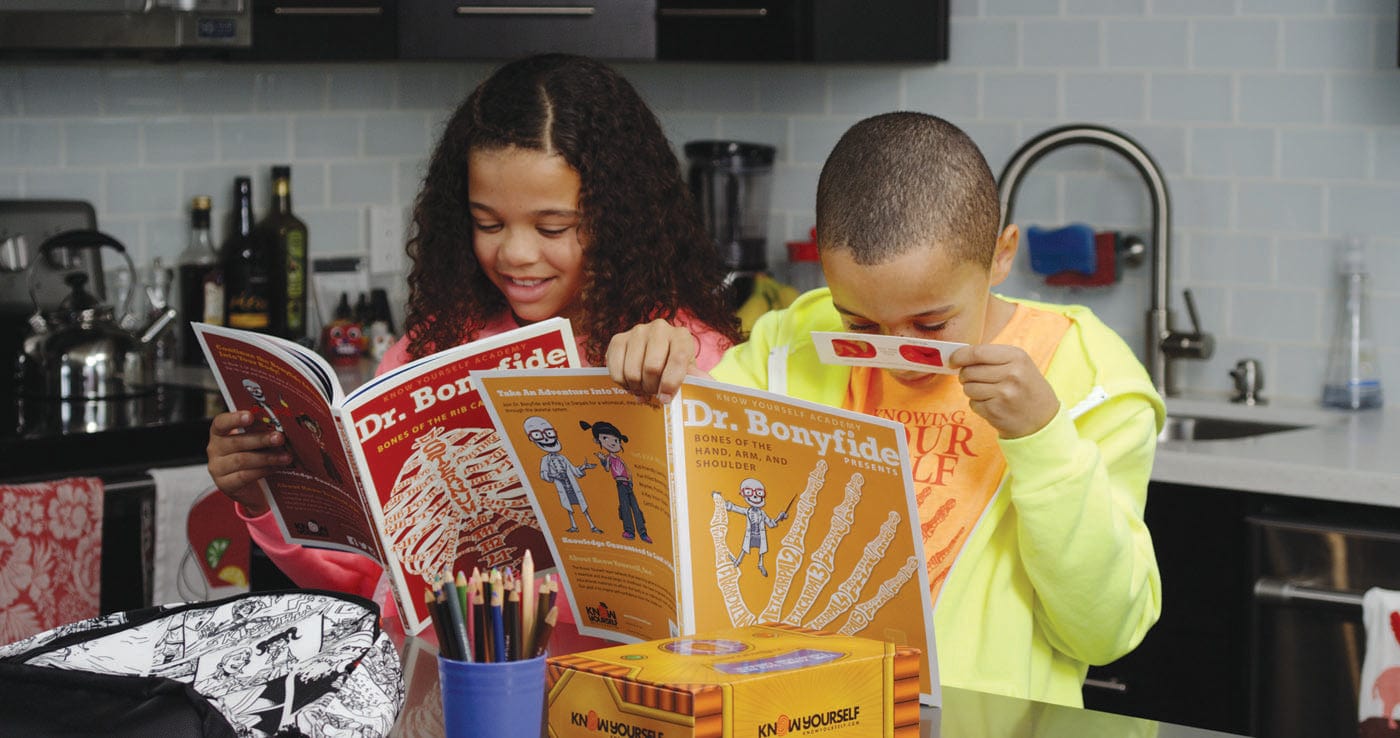
Hey there, Adventurers!Dr. Bonyfide here.
A few Know Yourself-ers asked me some great questions about the Five Senses that I thought all of you might like to know about!
Remember, if your children have their own science and anatomy questions, you can always ask Dr. Bonyfide - I’ll be answering a few every week!
Why do your eyes get small when you look at light?
Great question! That dark part in the middle of your eye that gets smaller or bigger depending on the amount of light in your environment is called the pupil. Your pupils are responsible for letting the right amount of light into your eye. When it’s dark, your pupils get larger so that more light can get in - this is called dilation. If your pupils did not dilate, you wouldn’t be able to see in the dark very well! When it’s bright, your pupils get smaller to avoid too much light getting into your eye - that’s called constriction. If your pupils did not constrict, your eyes could get damaged in bright light.
Extra credit:
Have you ever noticed that there are times when your pupils dilate or contract even when the amount of light hasn’t changed? What situations are those? Comment below if you think you know the answer!
How many smells can you smell?
Another good question! Unfortunately, the answer to this one is less simple. However, scientists currently believe that the human nose is capable of sensing1 trillion different odors! That seems crazy, I know - but let’s remember how olfaction works. The human nose has about 400 types of scent receptors. When it comes across a scent - let’s say, the smell of cookies baking in the oven - molecules that make up that “fresh cookie smell” enter your nose and are picked up by specific sets of receptors. Those receptors send signals to your brain that let you know what you’re smelling. Now think of how many different combinations of receptors there could be - 1 trillion isn’t so crazy after all!









Leave a comment (all fields required)